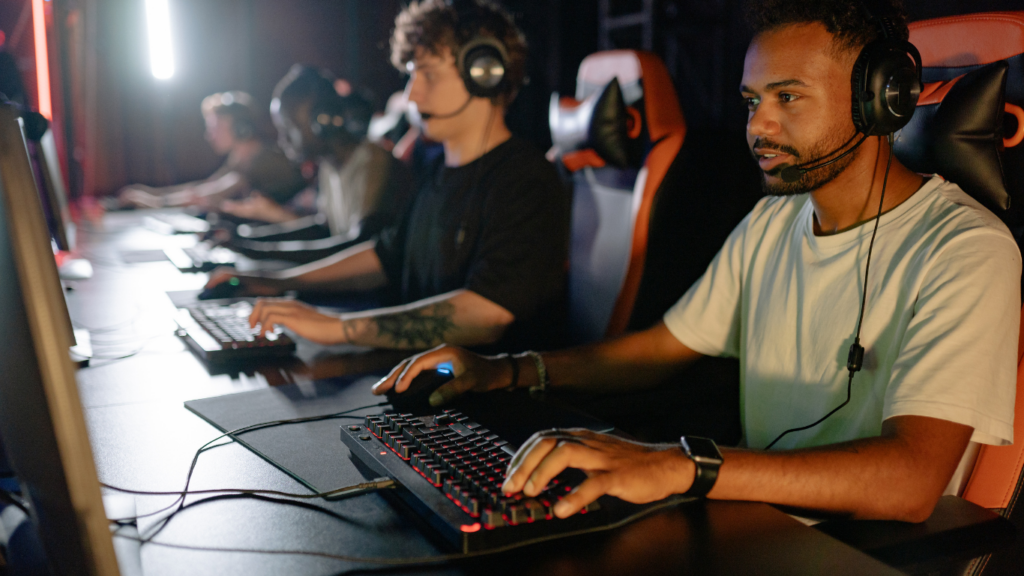The Rise of Digital Sponsorships in Sports
Digital sponsorships in sports have become a pivotal component of the marketing landscape. Brands seek to engage sports fans where they spend their time—online platforms. With over 4.9 billion internet users globally by 2023, according to Statista, the significance of digital presence is undeniable.
Social media platforms like Instagram, Twitter, and Facebook offer interactive tools that enhance sponsorship visibility. Brands capitalize on live streams, stories, and posts to create real-time connections with audiences. For example, Nike’s collaborations with athletes often showcase exclusive content, reaching millions instantly.
Athletes play a crucial role in digital sponsorships. They connect with fans personally, allowing brands to leverage these relationships for authentic promotions. Cristiano Ronaldo’s partnership with Clear leveraging his Instagram presence exemplifies this dynamic.
Analytics transform how sponsorships are measured. Brands use engagement metrics to assess the impact of their sponsorships, optimizing campaigns to boost visibility and ROI. This data-driven approach ensures precise targeting and increased viewer engagement.
E-sports, a rapidly growing industry, further propels digital sponsorships. With massive online followings, e-sports events attract sponsorships from tech giants and lifestyle brands alike. For instance, Coca-Cola’s involvement in the League of Legends scene highlights the potential for extensive digital reach.
Digital sponsorships redefine how brands communicate within the sports industry. This digital shift offers opportunities for innovative partnerships and broader global engagement. Leveraging the power of digital media codecs is now crucial for brands to maintain competitive advantage in sports sponsorships.
The Impact of Social Media on Sports Sponsorships

Social media radically reshapes sports sponsorships by enabling real-time engagement and boosting brand visibility. This transformation empowers brands and athletes to forge deeper connections with fans.
Engaging Fans in Real-Time
Social media enables instant fan engagement which traditional media can’t replicate. Platforms like Twitter and Instagram facilitate live interactions during games, driving fan participation. Athletes like LeBron James use these platforms to engage directly with audiences, sharing behind-the-scenes content that strengthens fan loyalty. Interactive polls and live Q&A sessions further enhance this engagement.
Enhancing Brand Visibility
Social media significantly amplifies brand visibility. Companies utilize platforms to disseminate branded content, ensuring their message reaches broader audiences. For instance, Adidas leverages Instagram stories to showcase sponsored athletes, capitalizing on the platform’s global reach. Analytics further support this strategy, allowing brands to tailor content for maximum visibility based on user engagement metrics.
Key Platforms Driving Digital Sponsorships
Digital sponsorships in sports thrive on key social media platforms where fans and brands interact dynamically. Understanding platform-specific strategies boosts sponsorship success.
Instagram and Athlete Influencers
Instagram excels in visual storytelling, with athlete influencers playing a central role. Athletes like Cristiano Ronaldo use their profiles to amplify brand partnerships. Instagram Stories and Reels drive engagement through behind-the-scenes content and real-time updates. This interplay creates authentic promotion experiences that resonate deeply with followers.
Twitter and Live Sports Conversations
Twitter dominates in fostering live sports conversations. Real-time tweets during games engage fans and create lively discussions. Brands leverage these interactions to boost visibility through promoted tweets and hashtags. Athletes participate by sharing personal insights, enhancing connectivity with fans. This platform’s immediacy makes it ideal for trending sponsorship activities.
Emerging Platforms and Trends
Emerging platforms like TikTok and Twitch introduce new sponsorship trends. TikTok’s short-form video content enables creative brand integrations. Twitch attracts e-sports audiences, allowing sponsors to tap into burgeoning gaming communities. Brands embracing these platforms gain access to diverse audiences and innovative engagement methods, expanding their digital impact.


 Founder & Chief Editor
Elaine Griffindorry is the visionary founder and chief editor of Sprint Scoop News. With over 15 years of experience in sports journalism, Elaine has a passion for breaking news, in-depth sports analysis, and insightful coverage of the business side of sports. She launched Sprint Scoop News to offer a fresh perspective on the world of sports, combining cutting-edge reporting with expert commentary on health, fitness, and esports. Elaine’s leadership ensures the site remains a trusted source for sports fans and professionals alike.
Founder & Chief Editor
Elaine Griffindorry is the visionary founder and chief editor of Sprint Scoop News. With over 15 years of experience in sports journalism, Elaine has a passion for breaking news, in-depth sports analysis, and insightful coverage of the business side of sports. She launched Sprint Scoop News to offer a fresh perspective on the world of sports, combining cutting-edge reporting with expert commentary on health, fitness, and esports. Elaine’s leadership ensures the site remains a trusted source for sports fans and professionals alike.
